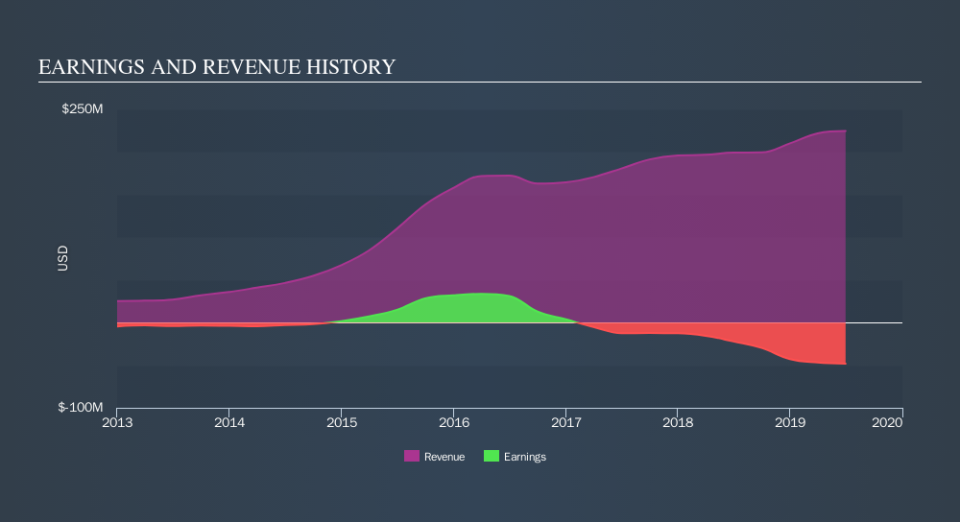Does The Ardmore Shipping Corporation (NYSE:ASC) Share Price Tend To Follow The Market?

Anyone researching Ardmore Shipping Corporation (NYSE:ASC) might want to consider the historical volatility of the share price. Modern finance theory considers volatility to be a measure of risk, and there are two main types of price volatility. The first category is company specific volatility. This can be dealt with by limiting your exposure to any particular stock. The other type, which cannot be diversified away, is the volatility of the entire market. Every stock in the market is exposed to this volatility, which is linked to the fact that stocks prices are correlated in an efficient market.
Some stocks are more sensitive to general market forces than others. Beta is a widely used metric to measure a stock's exposure to market risk (volatility). Before we go on, it's worth noting that Warren Buffett pointed out in his 2014 letter to shareholders that 'volatility is far from synonymous with risk.' Having said that, beta can still be rather useful. The first thing to understand about beta is that the beta of the overall market is one. Any stock with a beta of greater than one is considered more volatile than the market, while those with a beta below one are either less volatile or poorly correlated with the market.
Check out our latest analysis for Ardmore Shipping
What does ASC's beta value mean to investors?
Zooming in on Ardmore Shipping, we see it has a five year beta of 1.2. This is above 1, so historically its share price has been influenced by the broader volatility of the stock market. Based on this history, investors should be aware that Ardmore Shipping are likely to rise strongly in times of greed, but sell off in times of fear. Beta is worth considering, but it's also important to consider whether Ardmore Shipping is growing earnings and revenue. You can take a look for yourself, below.
Does ASC's size influence the expected beta?
With a market capitalisation of US$238m, Ardmore Shipping is a very small company by global standards. It is quite likely to be unknown to most investors. It has a relatively high beta, suggesting it is fairly actively traded for a company of its size. Because it takes less capital to move the share price of a small company like this, when a stock this size is actively traded it is quite often more sensitive to market volatility than similar large companies.
What this means for you:
Beta only tells us that the Ardmore Shipping share price is sensitive to broader market movements. This could indicate that it is a high growth company, or is heavily influenced by sentiment because it is speculative. Alternatively, it could have operating leverage in its business model. Ultimately, beta is an interesting metric, but there's plenty more to learn. This article aims to educate investors about beta values, but it's well worth looking at important company-specific fundamentals such as Ardmore Shipping’s financial health and performance track record. I highly recommend you dive deeper by considering the following:
Future Outlook: What are well-informed industry analysts predicting for ASC’s future growth? Take a look at our free research report of analyst consensus for ASC’s outlook.
Past Track Record: Has ASC been consistently performing well irrespective of the ups and downs in the market? Go into more detail in the past performance analysis and take a look at the free visual representations of ASC's historicals for more clarity.
Other Interesting Stocks: It's worth checking to see how ASC measures up against other companies on valuation. You could start with this free list of prospective options.
We aim to bring you long-term focused research analysis driven by fundamental data. Note that our analysis may not factor in the latest price-sensitive company announcements or qualitative material.
If you spot an error that warrants correction, please contact the editor at editorial-team@simplywallst.com. This article by Simply Wall St is general in nature. It does not constitute a recommendation to buy or sell any stock, and does not take account of your objectives, or your financial situation. Simply Wall St has no position in the stocks mentioned. Thank you for reading.

